This feature is now available as a “Limited Edition” Blu-ray from Radiance Films.
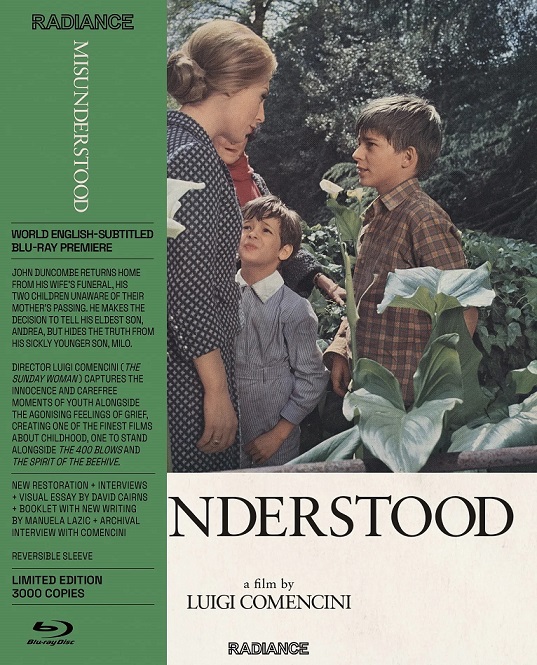
Radiance Films has become well-known over the past year or two for delivering wonderful transfers of unique and hard-to-find European and Asian features. Most have subject matter that appeals to genre fans, so one might not expect the company to focus on a story that many would classify as a melodrama. However, the Italian feature Misunderstood aka Incompreso (Vita col Figlio) definitely falls into this category. Despite the fact that it isn’t the kind of entertainment that a cult movie enthusiast might initially seek out, it’s hard not to be impressed by the title. This is a beautiful movie and an excellent disc.
For those unfamiliar with the story, it is set in Florence, Italy and follows the sons of stuffy UK Consulate General John Duncombe (Sir Anthony Quayle) immediately after the tragic death of their mother. In fact, the film begins with Duncombe trying to figure out how to break the news to his kids. He fears that sensitive 6-year-old Milo (Simone Giannozzi) will need more comforting and support than 12-year-old Andrea (Stefano Calagrande), who doesn’t initially appear as upset about the loss (he almost comes across as indifferent). But in many respects, Milo is more calculating and emotionally manipulative than his older brother. Regardless, Andrea is perceived as icy and ends up being blamed for whatever trouble occurs around the house. The father buries himself in work, failing to read the older boy’s despair and communicate meaningfully. Things pick up when eccentric Uncle William (John Sharp) arrives and tries to help the parent and son connect, but these issues continue into the climax.
For an individual used to seeing Hollywood portrayals of tots, what stands out about this adaptation is the children and their exceptional performances. They are the story’s main characters and easily carry the leading parts. The film feels far more authentic than others of its ilk, because the kids act out in ways that are rarely seen in big productions. In fact, they frequently veer between being cute and wicked. Overall, the two are generally empathetic, but do behave badly at various intervals. Younger Milo is surely suffering, but lashes out and screams when others try to help him and manipulates those around him (sometimes to make his older sibling get into trouble). Andrea behaves in an increasingly distant manner, but only because he is convinced his father has lost support for him.
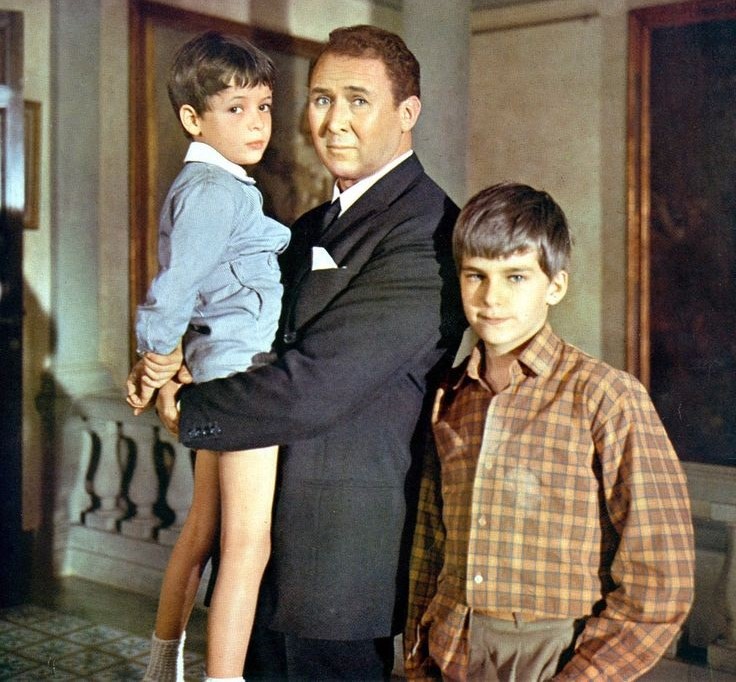
All the drama is realistic and believably presented. Even the father, who, while well-intentioned, completely mishandles the situation. Generally speaking, most of his assumptions about his kids are incorrect. The young, seemingly more innocent Milo is far more adept at dealing with the loss than the older child, who is being ignored. It results in compelling scenes between the kids and adults that ring true. They include both kids tormenting a nanny in a grimly funny way, as well as Milo seemingly trying to make himself ill to garner more attention.
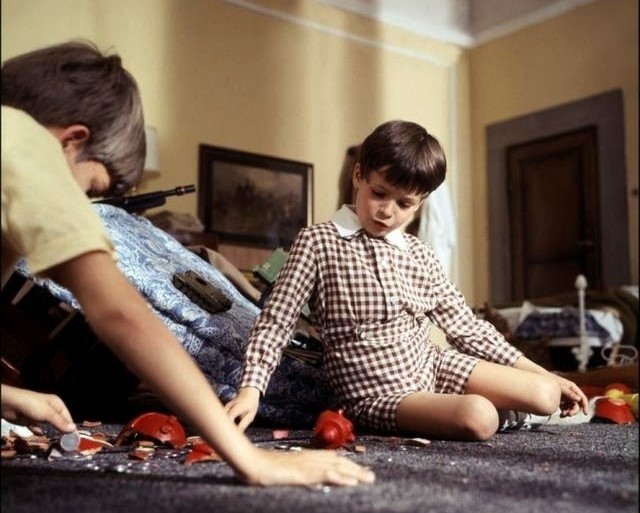
Part of the story involves a lone recording of the mother’s voice that Andrea is desperate to hear. When the tape is erased, he becomes obsessed with recovering the audio. Andrea’s exploits traveling to the city center and begging an old shop-owner to recover the voice are heart-wrenching. Noting the unfortunate situation, the man gives the child wine (which leads to another potentially disastrous situation when he returns home drunk). Additionally, as Andrea becomes more isolated and alone, there’s an amusing and sad scene of him going to the movies, drowning his sorrows in soda, and trying in vain to befriend other kids at the show.
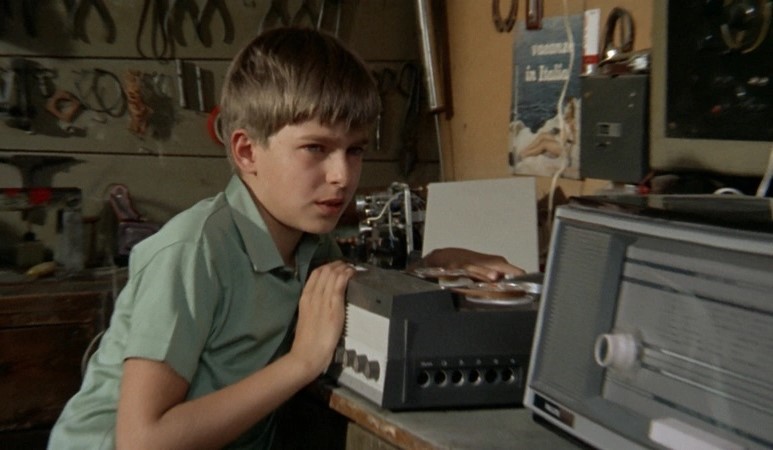
It all culminates in another tragedy and a big emotional final act that forces the two opposing family members to deal with their differences and come to some kind of understanding. The circumstances are grandiose, but the movie manages not to overplay them and succumb to excessive sentimentality.
This is a very strong family drama and one that also benefits from impressive photography. The Florence locations are gorgeous and the stately manor is striking on the eyes. There are a lot of big, open spaces highlighting the distance between characters and plenty of interesting hues that highlight story elements (there’s a great deal of yellow that appear to signify the late mother). The 2K restoration from the original film negative is generally very good. It isn’t perfect and there are a couple of brief moments that are spotty, but most of it is sharp and the film no doubt looks better here than it ever has before.
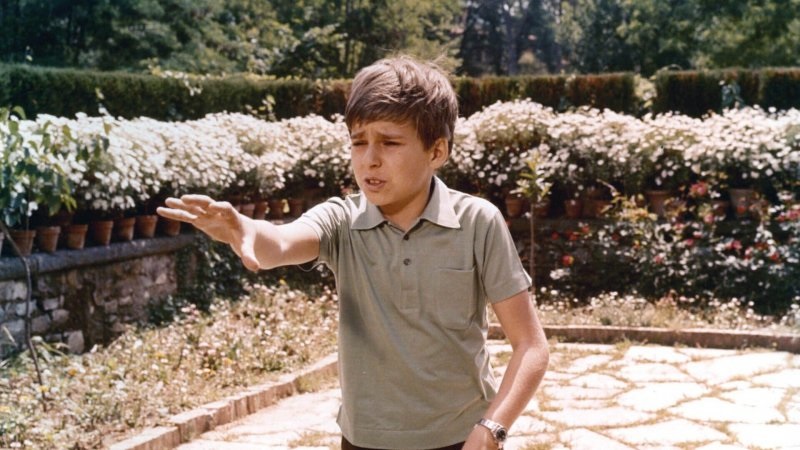
The disc also comes with plenty of bonuses. There is an archival interview with an Italian film critic that covers director Luigi Comencini’s career. It does include trivia about this movie. Apparently, the filmmaker had done an earlier picture with similar themes about a lower-class family, but felt that the political elements and family drama were fighting for screen time. Making the family wealthy in this feature allowed him to deal specifically and entirely with the inner dynamic between father and son, rather than become distracted by any kind of class or financial struggles.
As for his work in general, it seems Comencini had a lot of hits in his homeland with comedies, but never really stuck to one specific genre and ended up making a wide variety of pictures. The historian notes that this drama was another commercial success for the moviemaker, but was frowned upon by local critics. He explains that there was a great deal of ill-will placed on Comencini by the press. The expert asserts that they hated him for actually being popular with the masses. As a result, the film was critically ignored in its homeland before being rediscovered (as well as his other works) by French critics in the late 1970s. They applauded his catalog, finally giving him the recognition he deserved.
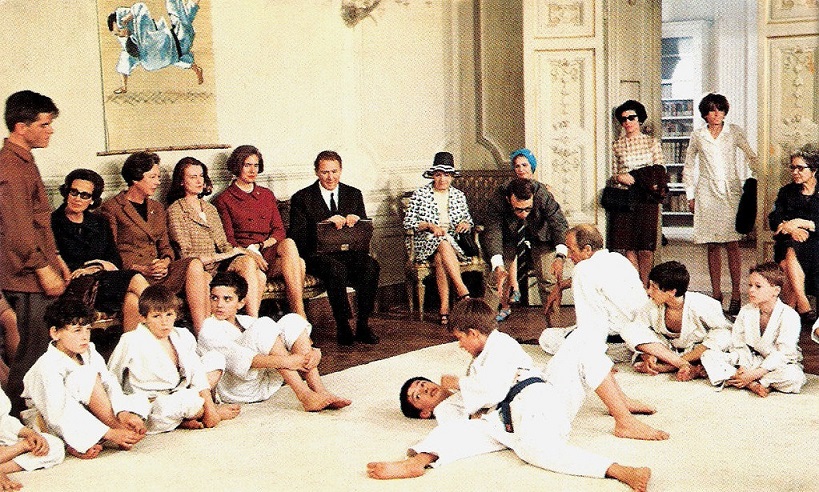
There’s an interview with the daughter of Comencini and one of the several screenwriters on the picture, who shares the unusual writing process for the picture. It seems the writers and directors would get together, talk about the story and hash out plot points together, writing as they progressed. These meetings took place over a period of about five months. The director’s daughter also comments on the film’s lasting impact and the emotional resonance it has, causing many Italians to cry whenever they view it.
And there is another bit with a film expert who notes that many of the director’s works star children. He analyzes these pictures, looking for common themes and detailing each one individually. Comencini always managed to get excellent performance from his young casts (who rarely acted again), and this historian thinks that the moviemaker had a knack for picking children who were naturally similar to the characters they were playing.
The disc also includes a trailer. And, like their other titles, it comes with a booklet featuring essays on the movie, as well as details on the cast and crew. The cover also has a reversible sleeve.
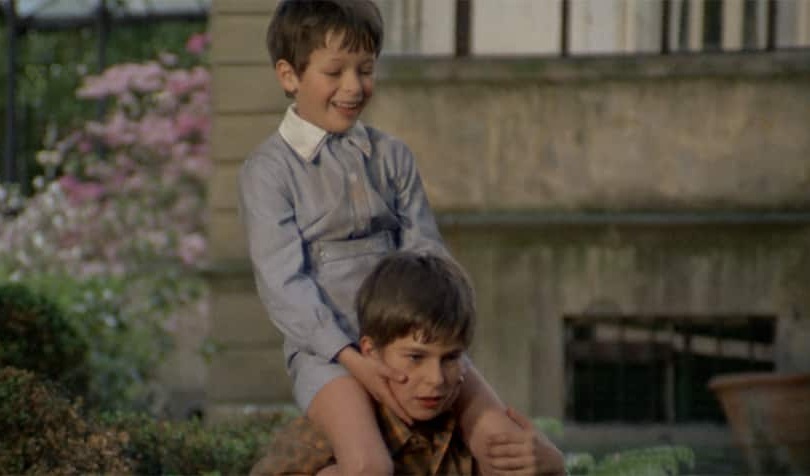
Misunderstood is a powerful drama that feels very authentic in how it deals with children and the various, sometimes unexpected ways they cope with loss. It isn’t always pretty or straightforward, but that’s the point. This is an exceptionally well told and beautiful-looking character study featuring incredible performances from both its young and established cast members. If you’re looking for a well-regarded drama from Europe, this is a great Blu-ray to take a chance on.


